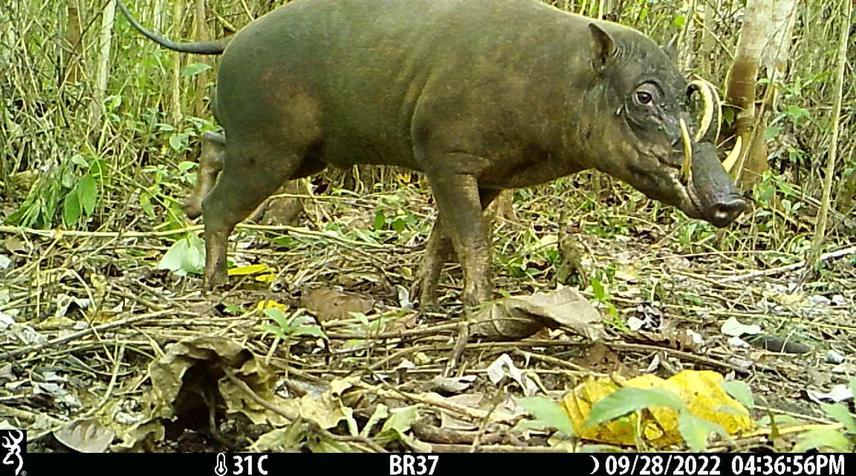Social media videos featuring the project.
Tarsius niemitzi, the endemic tarsier of the Togean Islands
Togean Islands Babirusa (Babyrousa togeanensis)
A very itchy babirusa: Togean babirusa scratching its back on a wallowing-pond
8 Apr 2022 Togean Archipelago, Indonesia, Asia Biodiversity | Mammals
The Togean Island babirusa (Babyrousa togeanensis) is an endangered species endemic to the Togean Archipelago, Central Sulawesi, Indonesia. This species is one of the most poorly studied mammal species in Indonesia. Currently, there is only one published article about the species which its population size was estimated from interview survey. Consequently, very little is known on its distribution and on ways to monitor its populations.

A male Togean Islands babirusa recorded by a camera trap in this project.
My project aims to fill this critical knowledge gap by developing a monitoring program for this species through the involvement of citizen scientists. I will distribute 100 camera trap sites across the entire distribution range of the babirusa for five months and assess key habitat characteristics using remote sensing and field measurements. By fitting occupancy modelling to our data, I will map occupancy and detection probabilities across the environmental gradients examined and concurrently estimate the required sampling effort to monitoring this species. Finally, I will organize training workshops to teach national park wardens and citizen scientists how to perform the monitoring protocol and will provide them with the tools (camera traps, data management training) to continue the monitoring activities in the future.
Social media videos featuring the project.
Tarsius niemitzi, the endemic tarsier of the Togean Islands
Togean Islands Babirusa (Babyrousa togeanensis)
A very itchy babirusa: Togean babirusa scratching its back on a wallowing-pond